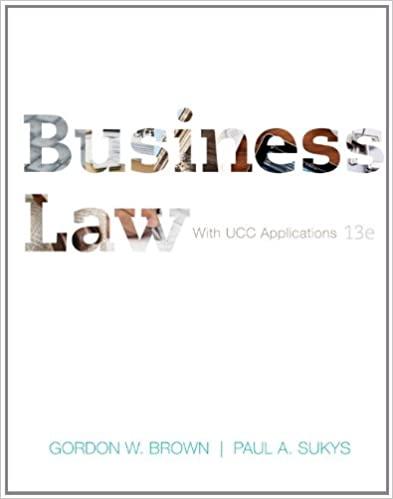Darlington Manufacturing Co. operated one textile mill that was controlled by Deering Milliken, which operated 27 other
Question:
Darlington Manufacturing Co. operated one textile mill that was controlled by Deering Milliken, which operated 27 other such mills. The union began an organizational campaign, which Darlington resisted.
The employees filed charges of unfair labor practices with the NLRB. The board found in a subsequent hearing that the different mills controlled by Deering Milliken represented an integrated enterprise and that the closing of the Darlington mill was due to the antiunion hostility of Deering Milliken.
The NLRB ordered Deering Milliken to provide back pay to the workers until they obtained similar work. The court of appeals denied enforcement of the NLRB order, holding that an independent employer has an absolute right to close a business, regardless of notice. On review by the U.S. Supreme Court, how should the Court rule on the question of whether an employer has the absolute right to close part of a business, no matter what the reason? Why? Textile Worker’s Union v. Darlington Mfg. Co., 380 U.S. 263 (U.S. Sup. Ct.).
Step by Step Answer:

Business Law With UCC Applications
ISBN: 9780073524955
13th Edition
Authors: Gordon Brown, Paul Sukys





